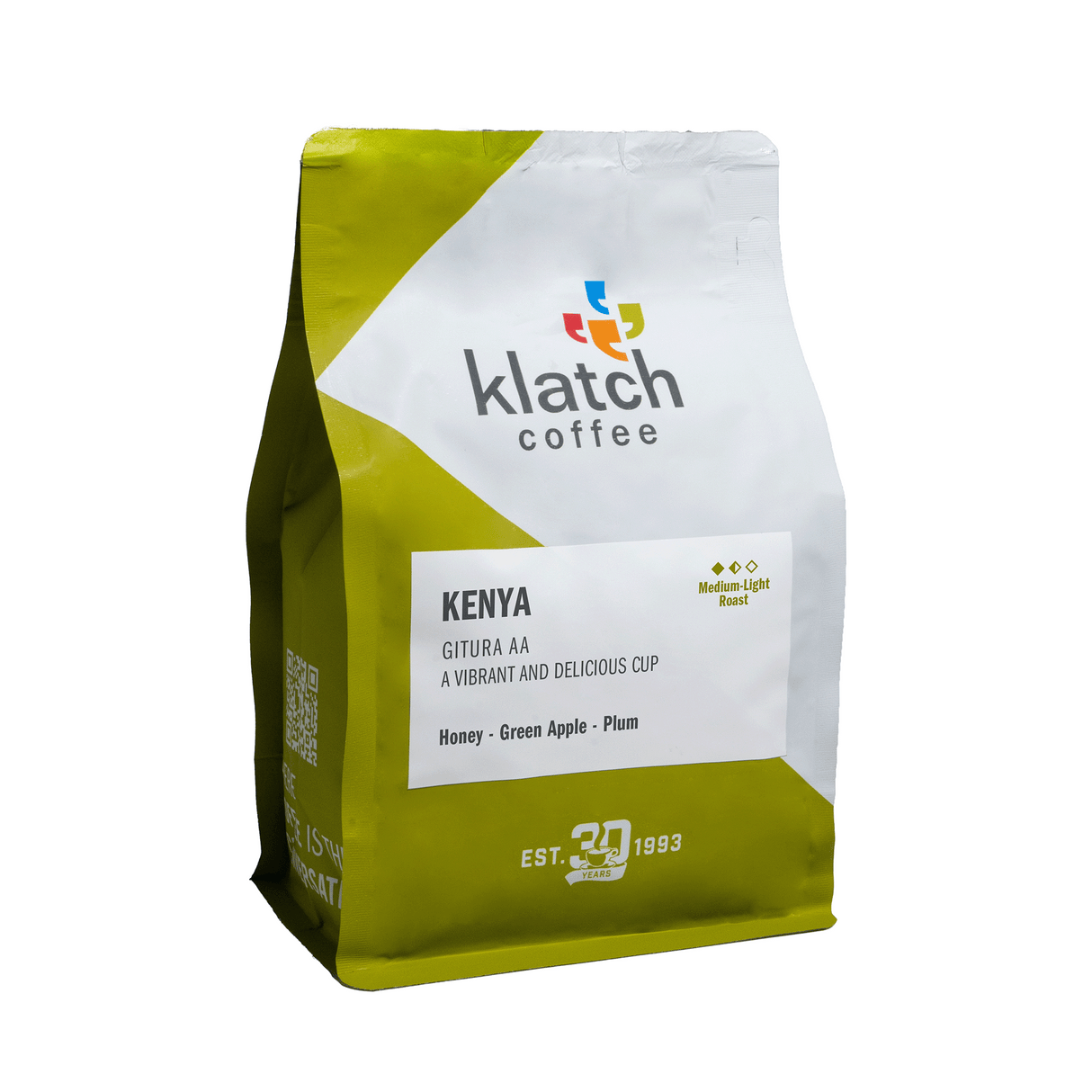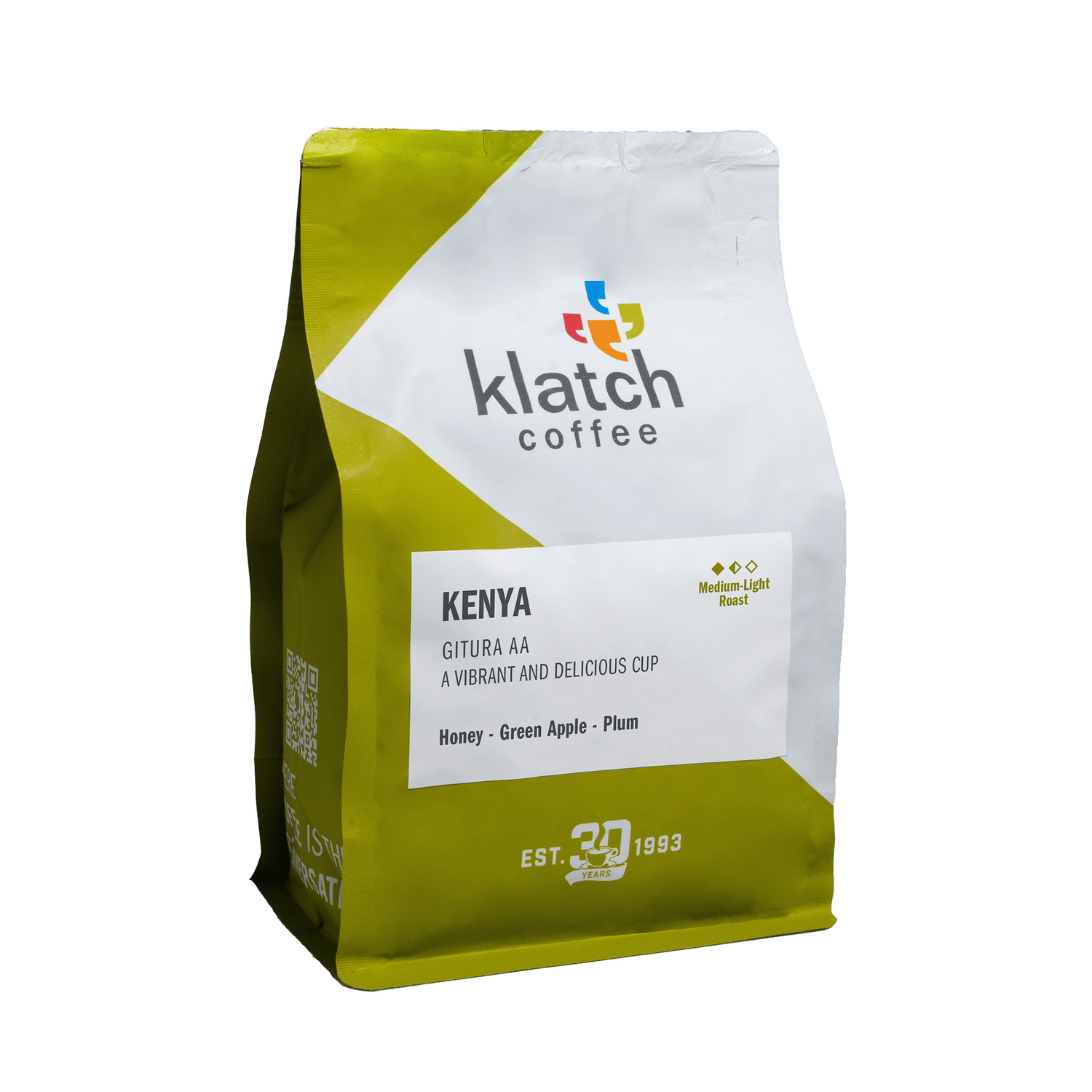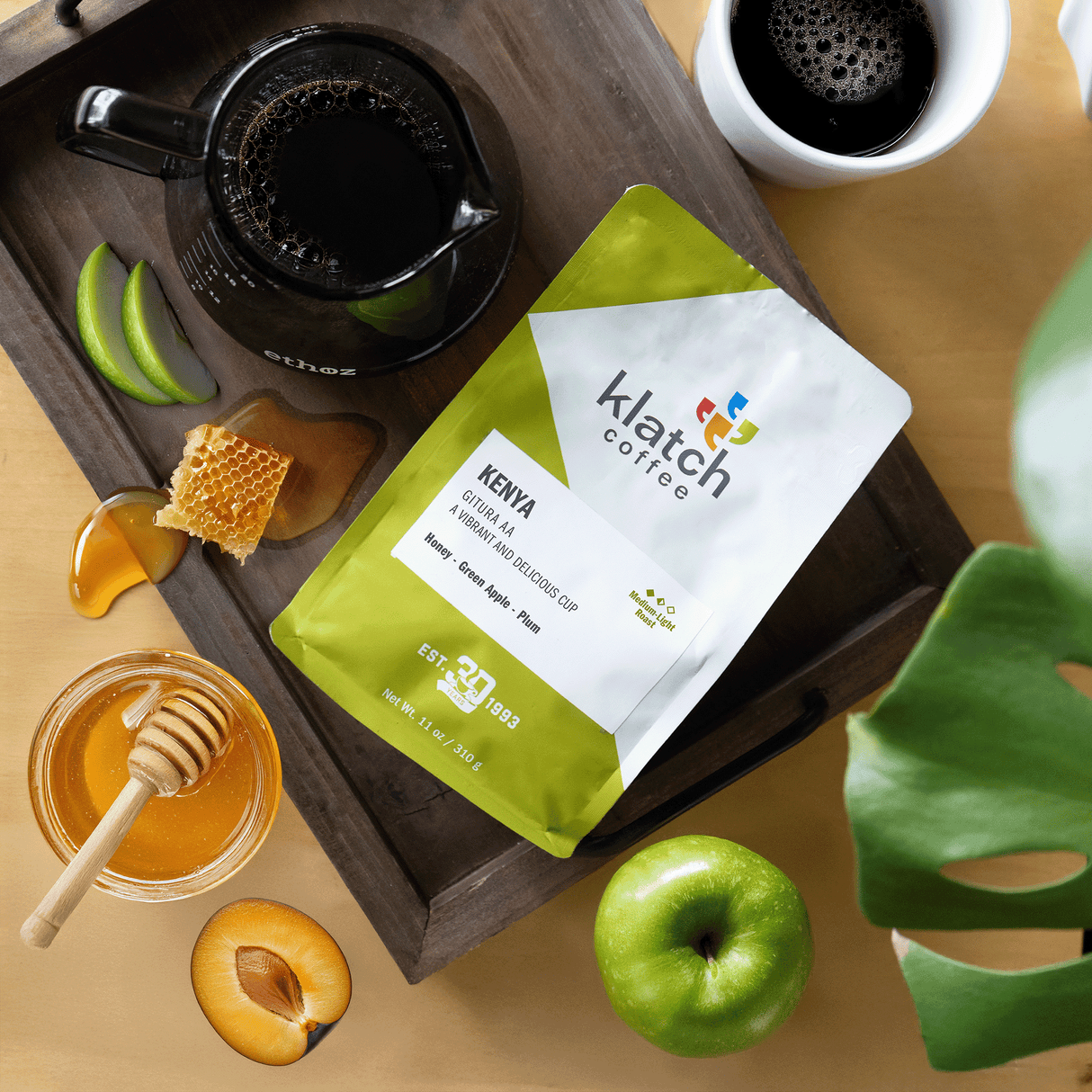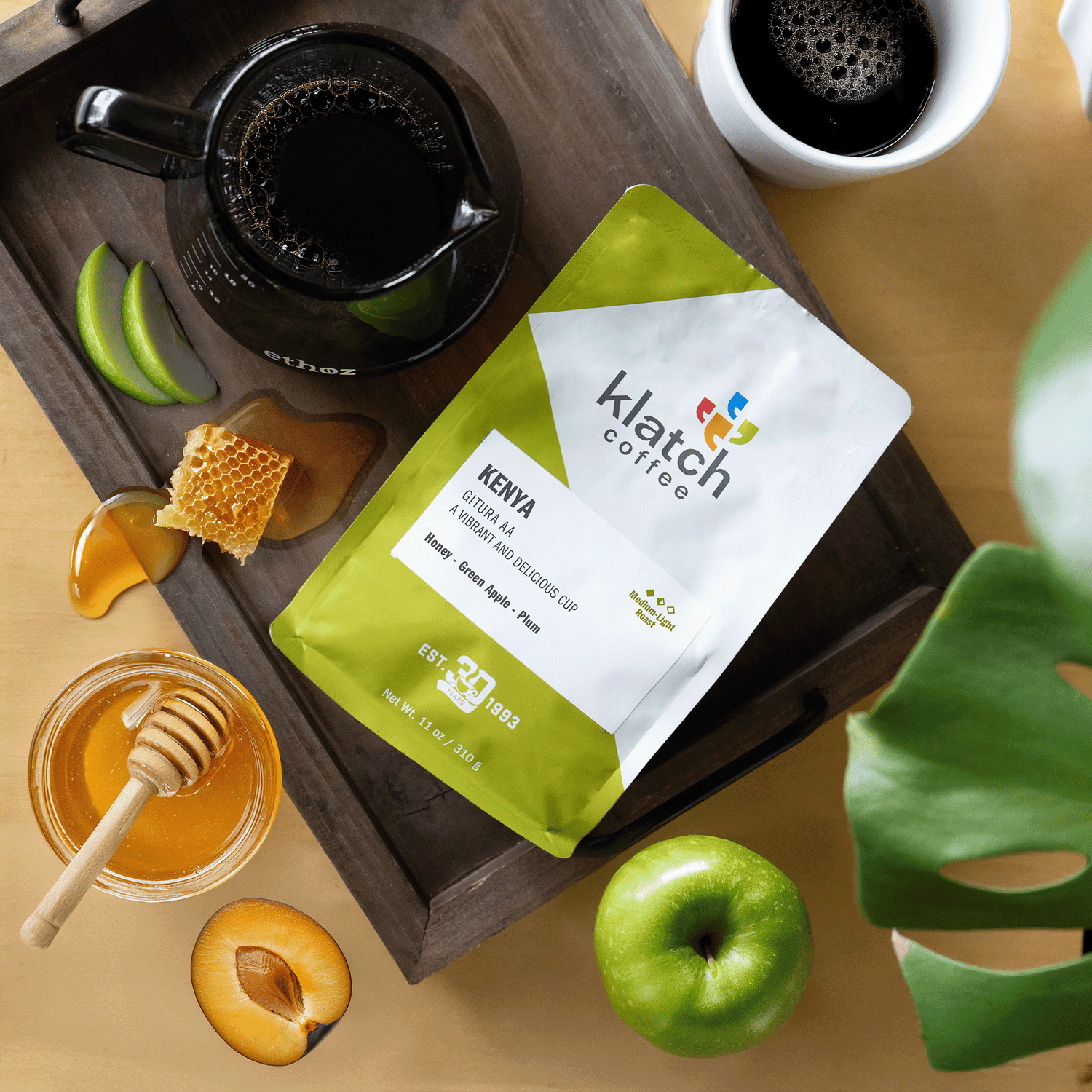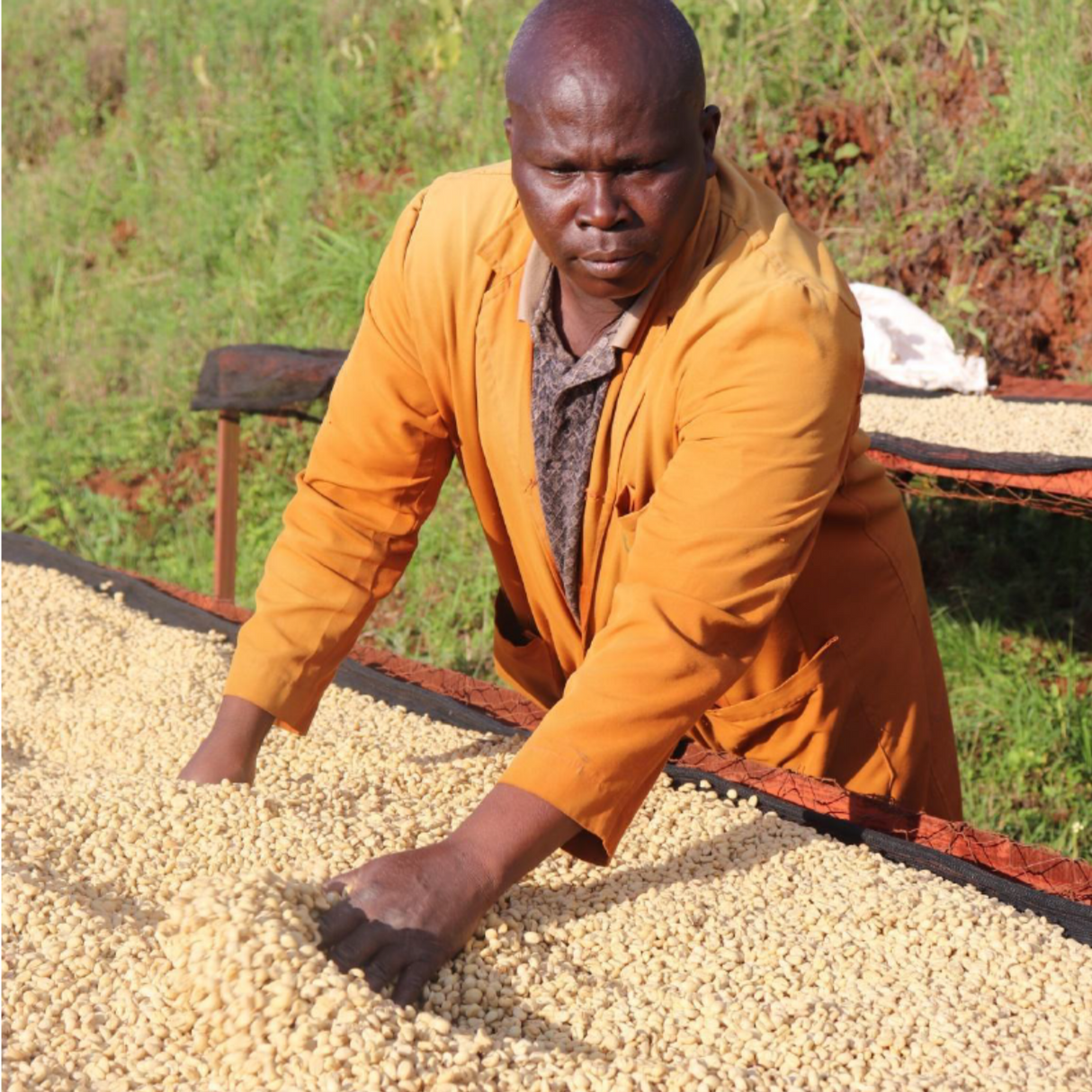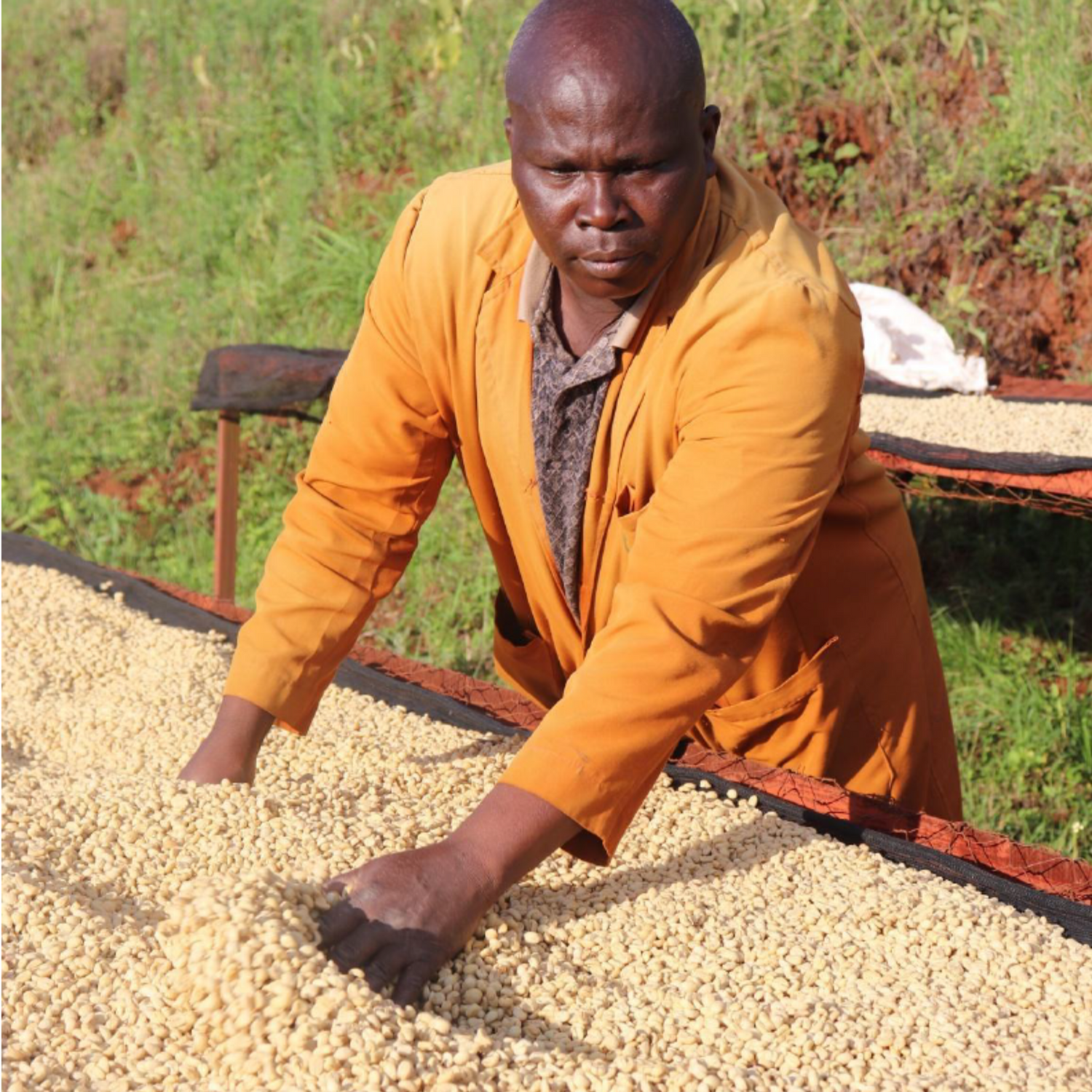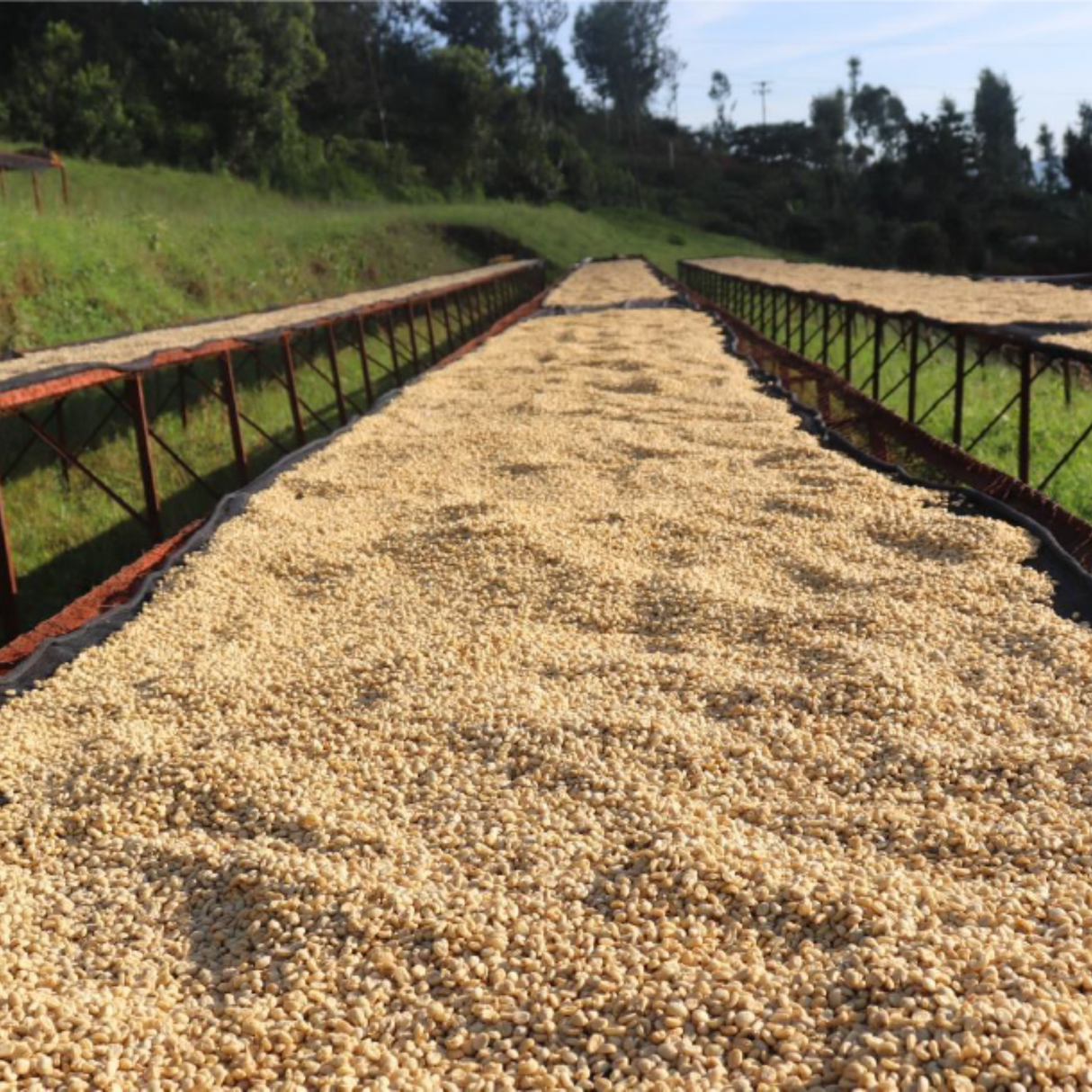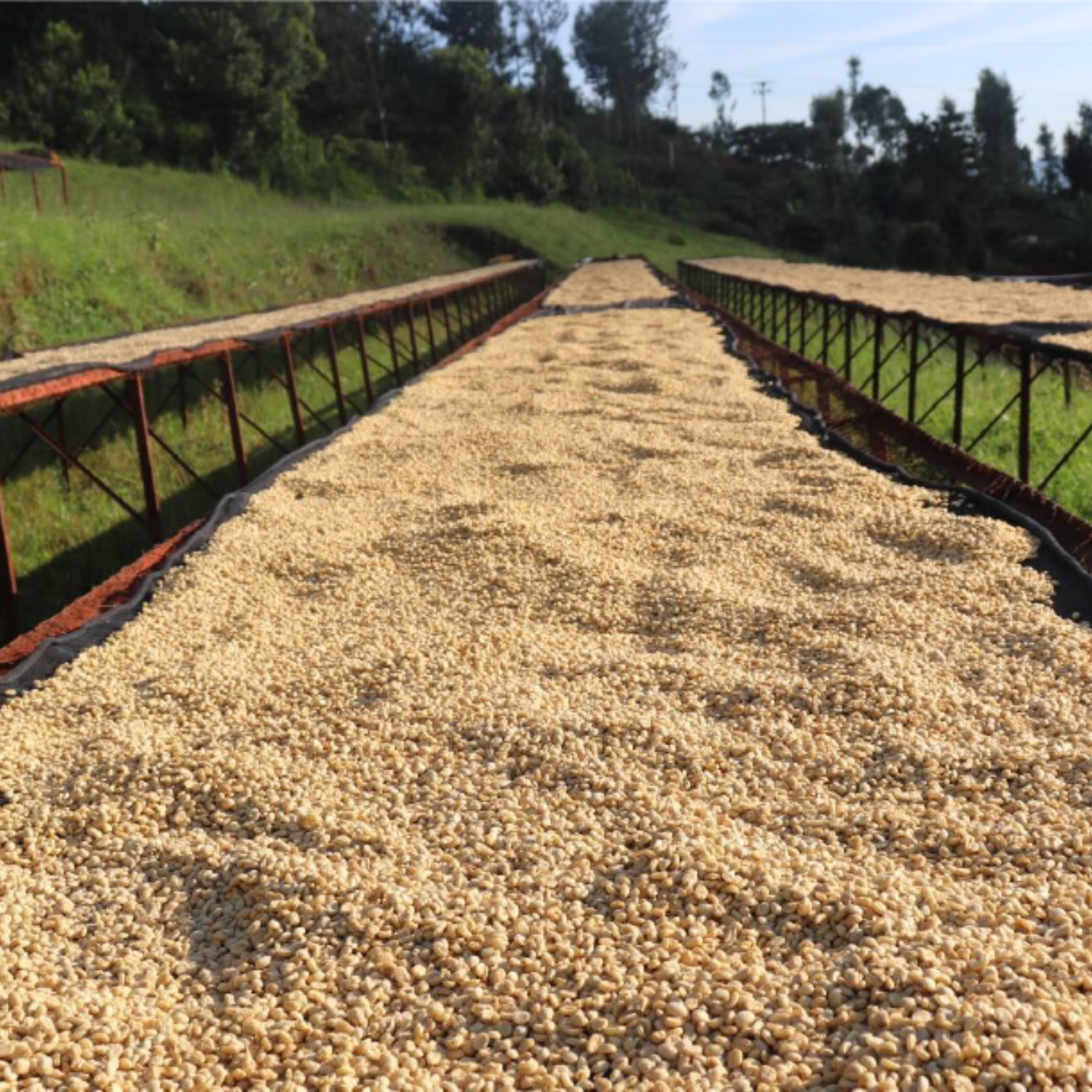Kenya Gitura AA
Roasted to Order
Roasted to Order
Always roasted to order, so you receive the freshest coffee possible.
Free shipping on orders over $50
Free shipping on orders over $50
Enjoy free shipping on all $50 orders.
Starting a club subscription? Shipping on club orders is always free, regardless of order size.
New Arrival!
Description
Description
Embark on a flavor journey with our Kenya Gitura AA, experience bursts of golden honey sweetness and the crisp, tart brightness of green apple, unfolding into a layered plum complexity. Juicy blackberry, green grape, and ripe plum harmonize for a vibrant cup that lingers with depth. The clean, tea-like aroma invites you in, while the medium-light body carries a mouthfeel that is both bright and juicy. Each sip finishes crisp and refreshing, leaving you ready for the next.
A Roastmaster’s Obsession
Kenyan isn’t just any coffee, they're also Roastmaster Mike Perry’s all-time favorite! Our Kenyan coffees are so good, he brings home 3 lbs every week. Mike is constantly in pursuit of great Kenyan coffees - if you’re looking for a next-level cup of joe, Kenya is the single origin that Mike brews for himself, again and again.
Specifications
Specifications
-
Roast Level
-
VarietalSL28, SL34, Ruiru 11
-
Process
-
Farm
-
Farmer
-
Region
-
Mouthfeel
Soil and Climate The factory lies about 1750m. The soil is volcanic red. The area experiences high bimodal rainfall of about 1000mm p.a. with temperatures ranging between 13-26 degrees Celsius. The long rains fall between March-May while the short rains come between October and December. Production The area experiences a biennial production cycle with the early harvest being from March-May and the late second season being from October-December. The main varieties of coffee grown are Arabica and Ruiru 11, where Arabica accounts to 97% of the production while 3% is Ruiru 11. Sustainable Farming In line with the rising awareness on the need to conserve the environment the factory has initiated a couple of projects among these are the waste water soak pits, of which the factory has 4. Here the water is allowed to soak in back to the soil. Currently the factory does not engage in waste water treatment. Agronomy The affiliate members of the factory carry out all agronomic activities associated with coffee production i.e. they source coffee from the Coffee Research Station and plant it according to the stipulated guidelines. Fieldwork carried out involves weeding, pruning, spraying, and application of fertilizer, mulching and technical advice. Technical advice is offered through farmer training programs and field visits/days offered by ministry of agriculture. Compliance to the agreed guidelines is checked and supervised by the field committee which goes round the farms. They usually check that coffee is not inter-grown with other crops such as maize, and Bananas, though they do allow intercropping with Macadamia. They also encourage farmers who have abandoned their coffee bushes to come more so due to high prices. Processing After harvesting all the coffee is delivered to the factory and undergoes the wet processing method. Water is pumped using a Diesel engine from Kiboru Stream to the reservoir tanks for pulping and recirculation. After pulping the coffee is stored over night, washed, soaked and spread on the dryingbtables. The parchment is then frequently turned on the drying tables, sorted and stored awaiting delivery to the millers who are also the marketing agent-KPCU. To ensure that the processing is carried out efficiently the factory has invested in a pulper, a recirculation system and 10 conditioning bins. Management Gitura Coffee factory is run by the factory manager with 4 permanent members of staff and Casuals. The number of Casual staff varies from year to year depending on crop harvest. During the peak season the factory employs about 8 casuals while on off-peak at most 3 Casuals are retained. The Permanent staff duties include weighing coffee, selection and grading of coffee, paying farmers and addressing farmers’ complaints.
Soil and Climate The factory lies about 1750m. The soil is volcanic red. The area experiences high bimodal rainfall of about 1000mm p.a. with temperatures ranging between 13-26 degrees Celsius. The long rains fall between March-May while the short rains come between October and December. Production The area experiences a biennial production cycle with the early harvest being from March-May and the late second season being from October-December. The main varieties of coffee grown are Arabica and Ruiru 11, where Arabica accounts to 97% of the production while 3% is Ruiru 11. Sustainable Farming In line with the rising awareness on the need to conserve the environment the factory has initiated a couple of projects among these are the waste water soak pits, of which the factory has 4. Here the water is allowed to soak in back to the soil. Currently the factory does not engage in waste water treatment. Agronomy The affiliate members of the factory carry out all agronomic activities associated with coffee production i.e. they source coffee from the Coffee Research Station and plant it according to the stipulated guidelines. Fieldwork carried out involves weeding, pruning, spraying, and application of fertilizer, mulching and technical advice. Technical advice is offered through farmer training programs and field visits/days offered by ministry of agriculture. Compliance to the agreed guidelines is checked and supervised by the field committee which goes round the farms. They usually check that coffee is not inter-grown with other crops such as maize, and Bananas, though they do allow intercropping with Macadamia. They also encourage farmers who have abandoned their coffee bushes to come more so due to high prices. Processing After harvesting all the coffee is delivered to the factory and undergoes the wet processing method. Water is pumped using a Diesel engine from Kiboru Stream to the reservoir tanks for pulping and recirculation. After pulping the coffee is stored over night, washed, soaked and spread on the dryingbtables. The parchment is then frequently turned on the drying tables, sorted and stored awaiting delivery to the millers who are also the marketing agent-KPCU. To ensure that the processing is carried out efficiently the factory has invested in a pulper, a recirculation system and 10 conditioning bins. Management Gitura Coffee factory is run by the factory manager with 4 permanent members of staff and Casuals. The number of Casual staff varies from year to year depending on crop harvest. During the peak season the factory employs about 8 casuals while on off-peak at most 3 Casuals are retained. The Permanent staff duties include weighing coffee, selection and grading of coffee, paying farmers and addressing farmers’ complaints.
Growing Coffee in Kenya
Growing Coffee in Kenya
History of Coffee in Kenya
History of Coffee in Kenya
Payment Methods
Quick, easy, and secure
Klatchcoffee.com accepts Visa, Mastercard, PayPal, and Apple Pay.
